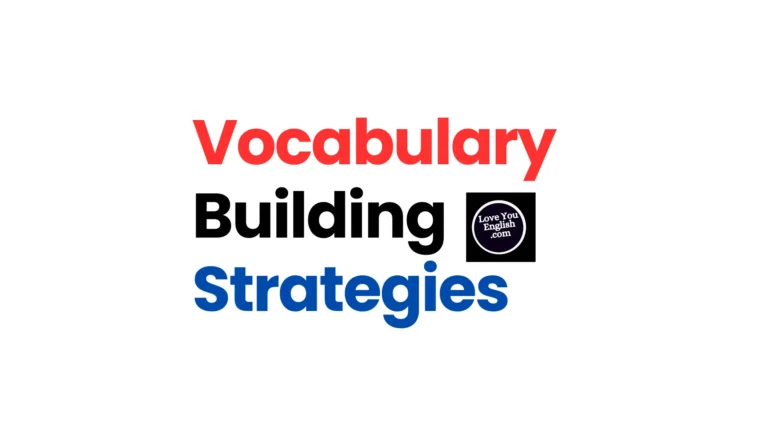Advanced English Verbs for Total Fluency
Hello everyone, today I want to teach you some new verbs.
And they are, well, they’re kind of advanced verbs, but they’re all about movement.
These are verbs that you can use to describe different types of movement.
And what I’ve done is that I’ve put them in categories to help you better understand the meaning of the verb, but also give you an idea as to when you might use these verbs.
Also read:
- How to Become an Online English Teacher
- How to Become An Online English Teacher in 2024
- 40 English Phrasal Verbs with Meanings
- Phrasal Verbs with “GET,” along with their meanings
Let’s begin with walking and running if you’re talking about that movement, walking and running. There are different verbs that you use.
Strutting
You can use strut, and if somebody is strutting, it’s talking about the way somebody is walking and it is more of a very confident walk, perhaps even an arrogant walk as well. And you could say that that they are strutting.
Stagger
And to stagger means to walk with great difficulty, almost as if you are about to fall over. And often I think you would use this verb in the the present tense, like you’re talking about something that’s happening right now and you would say he is staggering or she is staggering.
And also, I think it’s commonly used when referring to somebody who maybe has had too much to drink, they’ve had a lot to drink, they don’t really have a lot of control over what they’re doing, and they’re walking with great difficulty.
Then you could say that this person is staggering.
Bolt
And this is just to move really fast, almost like a run, and you might bolt to get somewhere. For example, I I often would use this if I’m talking about trying to get to an airplane and I’m late.
And I might say, well, I I bolted to the airplane I was running behind and I had to run. I bolted to that airplane.
Slip
This is talking about moving, that you’re moving quietly so that somebody doesn’t notice you. And often you’re going to follow this verb with the preposition.
You might slip by someone or slip past someone. Both of those mean the same thing. You’re just trying to get by this person without being noticed.
You could also slip inside, or slip outside of some place. Maybe you forgot something at work and you don’t want your boss to see you. You might slip inside the office.
And get whatever you need to get. And then you’re going to need to slip outside because you don’t want anybody to see you.
Drag one’s feet
Now this is an idiom and it means that you are moving reluctantly, you’re moving slowly, but you really don’t want to be moving forward. And you could say, well you know, you’re you’re dragging your feet.
So, for example, let’s say that, well, maybe you and I were traveling somewhere and we’re late. We need to get to the gate. And I’m like, OK, we need to go, we need to bolt to that airplane. But you just want to take your time a little bit. Maybe you’re like, hey, let’s go get a snack before we get on the airplane.
Maybe I’ll say, hey, you know, stop dragging your feet. We need to go, We need to bolt. Now, this idiom can also be used in other situations as well. It doesn’t always have to be talking about movement. It could be referring to progress as well.
So, if you have some work that you need to do, but you’re trying to avoid doing it, you are procrastinating. You could also say then that you’re dragging your feet, that you’re trying to avoid working on some project, you don’t want to do it.
I think we’ve all been there before. But maybe your colleague, your coworker, or even your boss might come over and tell you, look, you need to finish this project stop dragging your feet.
Now let’s talk about some verbs that you can use if you’re driving or flying, you’re in the car, you’re in the plane. And well, one thing we could say is hitchhike.
Hitchhike
And this means that you get a free ride with someone in a vehicle. Typically you’re talking about driving. You’re on the road, you’re standing on the road.
You got your thumb out and you are trying to hitchhike to some location and perhaps somebody would stop and pick you up to hitchhike Now I think, I don’t think it’s as common nowadays.
In some places people might even say it’s dangerous, but just so you know, in case you see somebody doing it on the side of the road, they are trying to hitchhike. Another verb which I think is very common nowadays is carpool.
Carpool
carpool with someone or carpool with others because it refers to traveling by car in a small group.
Either to protect the environment or just to save money, perhaps save on using gas and people will carpool to work, or they will carpool to school and they’ll ride together in a small group to carpool.
Leapfrog
Then we have the verb leapfrog, and this just means to take turns moving ahead of each other. I think you would use this to describe a situation in which you are driving maybe on the interstate, one person is passing the other, and then they pass you back, and then you pass them again and back and forth you go and you could refer to this situation.
And you are leapfrogging each other. And I think this happens when people perhaps are driving on an Interstate and you want to pass a car and you go in front and then you’re like, OK, I’m in front now.
And then next thing you know, they pass you. They just leapfrog you and then you want to pass them again. That is the situation in which you might use this verb or or hear somebody talking about it to leapfrog.
Swerve
To swerve and you could use this where if talking about driving or flying or flying and what it means is it’s a sudden change in direction, especially if somebody has been moving in a straight line.
And then they suddenly change directions and swerve to the left, or swerve to the right.
Soar
And finally we have the verb soar, which is really for flying, because it just means that you are flying high. And you could describe a plane and say that the plane is soaring through the air. It is flying high. It is soaring.
Now let’s talk about some verbs that you could use to describe the way perhaps certain animals might move.
Glide
To glide and this just means a continuous motion. And what I think of is perhaps a bird. Birds might glide through the air or maybe you’re talking about like a swan or a duck.
The way it moves across the water and you could say that it is gliding, it is just a smooth continuous motion.
Slither
Now we could also say slither and this is talking about moving by by sliding and twisting and. I almost always, I would think of a snake and you would say that the snake slithers.
That is how snakes move. They twist, they slide and they slither or you could use the word wobble.
Wobble
I think of a penguin because it’s talking about like moving. You’re like going back and forth from side to side and you’re walking in a way that shows that there is poor balance because when penguins walk, they kind of shake and they almost look like they’re about to fall over.
They don’t have very good balance. And you could then say that they look like they are wobbling. They’re just wobbling, They’re just wobbling along. And that is just, that’s how they move.
Gallup
Then we have the verb gallup, which I think is often used to describe the way a horse moves because it refers to an animal who is running and all four feet are off the ground at the same time they’re running the horse is galloping.
Wiggle
And then there is the verb wiggle. And I’ve included this verb because I think you could use it with if you’re holding an animal and you’re holding the animal and maybe the animal does not want to be held, it’s going to start wiggling, it’s going to move back and forth from side to side, up and down.
And they’re just these really small, quick movements because maybe the animal is trying to escape. Perhaps you’re holding a puppy and the puppy wants to get down and it just starts wiggling.
Now let’s talk about some verbs that you can use to talk about situations.
In this case, it’s not really always going to be a physical movement that you’re referring to, but we’re talking about a situation that you may need to move in one way or another.
Let me give you some examples about what I’m talking about. The first one I have for you is approach.
Approach
And this just means to get nearer and nearer to someone or something. Now we could use this verb to describe some actual physical distance. Some situation, I could say, well, hey, we are approaching our final destination.
We are getting nearer and nearer to this destination. But you could also use it if there is some problem or situation that you don’t know how to solve.
And you could say something like, OK, how are we going to approach this issue?
How are we going to get closer to it?
And in that case, you could use the word approach.
How are we going to approach this issue?
How are we going to approach this problem?
What is our plan? What are we going to do? Because we need to get closer to it in order to solve it or or remedy some situation.
How are you going to approach this?
Circumvent
Then we have the verb circumvent, and what it means to circumvent something is to basically avoid something, usually in a clever way. You’re trying to go around some type of obstacle.
A situation that all of us have is what we have to pay taxes and perhaps there is some type of tax we we want to avoid. We want to get around this. And you might try to circumvent the tax law.
And I could say, well, we discovered this new way to circumvent the tax laws and and we don’t have to pay this tax. So if you want to circumvent something you you’re just trying to avoid it. You’re trying to go around it in some clever way.
Smuggle
To smuggle something is to to move something secretly. And often, I think you were talking about something illegal, so you might hear it being used in the context of drugs.
People might smuggle drugs. You could also smuggle other people. But in either case, you’re talking about moving something secretly. And yes, it’s often illegal to smuggle.
Lag
And this just means making slow progress and it’s usually behind some other people. In that case, it’s quite often that you would follow this verb with the preposition behind.
Lag behind
Someone or you’re lagging behind, you’re making slow progress and well, you’re behind everyone else you are lagging.
Spiral
It means that something some situation, it’s getting worse and worse and it’s becoming more difficult to control. And quite often you would probably hear that entire phrase and you say that some situation it is spiraling out of control.
That’s not a good thing. You don’t want any situation to spiral out of control. So I hope this lesson was easy to follow. I hope it was easy to understand.
Try to identify them if you’re reading or listening something, or even use them in conversation if you happen to be talking about the way something moves.
What’s your favorite among these?






